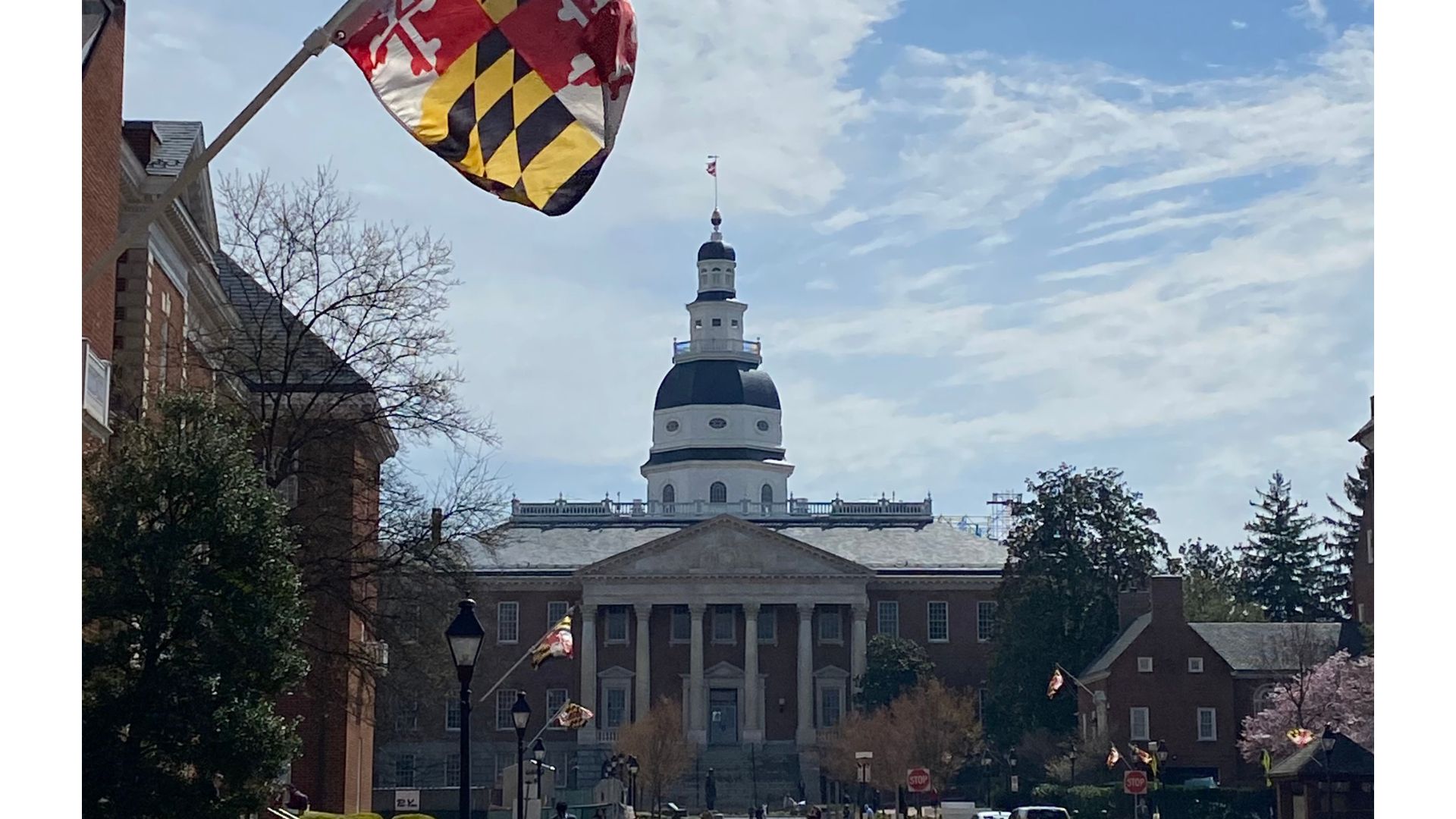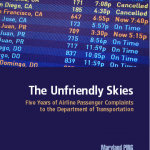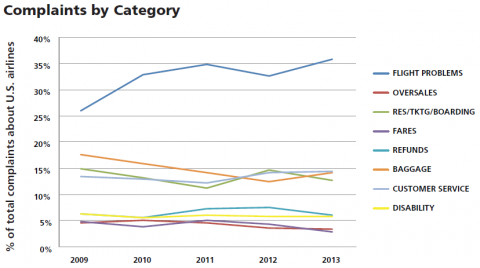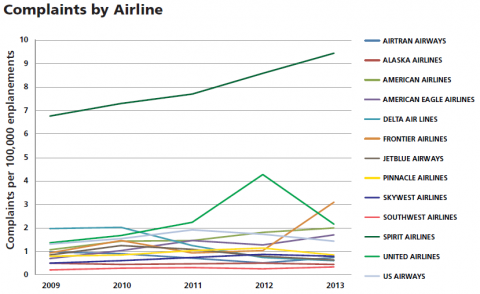
The Unfriendly Skies
Five Years of Airline Passenger Complaints to the Department of Transportation
Consolidation in the airline industry, along with pressures created by new security rules and the recent high cost of aviation gasoline, has changed the way we fly. It seems as if every consumer has an airline travel story—how they were trapped on the tarmac, tricked by fees, missed their connection, or lost their bag.
Downloads
Five Years of Airline Passenger Complaints to the Department of Transportation
Maryland PIRG Foundation

Consolidation in the airline industry, along with pressures created by new security rules and the recent high cost of aviation gasoline, has changed the way we fly. It seems as if every consumer has an airline travel story—how they were trapped on the tarmac, tricked by fees, missed their connection, or lost their bag.
What many consumers don’t know is that they do have a number of new rights as well as a right to complain, both to the airline and to the government.
For over a decade, the Department of Transportation has collected consumer complaints about air travel. This report analyzes these consumer complaints about U.S. air carriers for the five year period from 2009-2013, evaluates the effectiveness of new regulations and compares airlines’ performance.
This report tracks trends in tens of thousands of consumer complaints over time, finding how some airlines have improved their rankings and others have worsened. We also compare consumer complaint data with other DOT data that tracks airlines’ on-time performance and baggage handling.
The report finds that consumer’s most complaints were about Flight Problems, such as delays and cancellations. Other top problems were about baggage, customer service, as issues with reservations, bookings, and boarding. Over time, Flight Problems account for an increasing portion of the total complaints.

The airline that generated the most complaints relative to number of passengers was Spirit Airlines. Each year, Spirit’s passengers were about three times as likely to file a complaint as the second-place airline, and its complaints volume is trending upward over time. Southwest Airlines generated the lowest number of complaints relative to number of passengers each year.

U.S. PIRG Education Fund’s experience with other government agencies and their consumer complaint processes is that greater transparency and public education – including the establishment of a searchable public database of complaints – leads to greater compliance by regulated firms and improved customer service.
Among other recommendations, the report recommends the following:
-
That the Department of Transportation (DOT) establish a searchable public database of consumer airline complaints to supplement its monthly summary reports.
- That the DOT move more of its air travel databases onto the machine-readable data.gov platform.
- That policymakers provide funding for the unfunded air passenger consumer complaint hotline established in 2012.
- That the DOT require airlines to report complaint data about frequent flyer programs separately so that it can be added to the data that are available in DOT reports and in the future searchable public consumer complaint database.
Topics
Find Out More


5 steps you can take to protect your privacy now

Fixed for the Holidays
